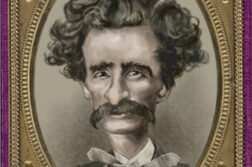Disillusionment set in for the GLBT movement even before Barack Obama took office. The incoming President’s decision to accord a central role in his inauguration to the fundamentalist Rev. Rick Warren suggested that reaching out to the religious right was a higher priority for the new administration than GLBT inclusion. The Obama Inaugural Committee’s last-minute choice of openly gay Episcopal Bishop Gene Robinson to deliver the invocation at an inaugural concert failed to allay concerns when his appearance was mysteriously left out of the television coverage. Civil rights advocates were also disappointed that highly qualified, openly gay candidates were passed over in the selection of the President’s cabinet. Openly gay Rep. Barney Frank’s optimistic assertion that GLBT people would now be part of America’s governing class was already ringing hollow by Inauguration Day.
An early indication that campaign promises to this community were being moved to the back burner came with the Administration’s decision to defer action on ending the exclusion of gay men and lesbians from the military. Obama the candidate had been unequivocal in his conviction that discharging patriotic Americans with such a vital qualification as Arabic translation skills damaged U.S. national security. Obama the president saw less urgency in improving the national defense by harnessing the abilities of all Americans free of discrimination during time of war. It seemed that gay equality was dispensable even where it coincided with such overriding priorities as keeping the nation safe from terrorism.
A low point came with the administration’s decision to defend the anti-gay Defense of Marriage Act against a constitutional challenge brought by the Boston-based Gay and Lesbian Advocates and Defenders. Not only did the Obama Administration maintain that discrimination against same-sex married couples was compatible with equal protection guarantees, it filed a brief that compared loving gay and lesbian relationships to incest and under-age marriages. The brief also argued disingenuously that DOMA embodied no anti-gay animus.
Some had predicted an inauspicious climate for gay civil rights in the Obama Administration when the incoming president selected former Clinton White House aide Rahm Emanuel as his chief of staff. Openly gay Clinton insiders had seen Emanuel as an obstacle to progress for GLBT Americans in the Clinton Administration. Longtime activist David Mixner, according to his 1996 book Stranger Among Friends, contacted Emanuel to express concerns about President Clinton’s commitment to ending discrimination against gays and lesbians in the military, only to be met with a torrent of verbal abuse: “We don’t have to explain or justify our actions to you,” said Emanuel, according to Mixner. “If the president of the United States never does another thing for you people, you should get on your knees and be thankful. He’s already done more for you all than anyone. How dare you question his actions!” While some saw Emanuel’s subsequent vote for the Employment Non-Discrimination Act in Congress as a hopeful sign, others saw reason for pessimism in his reputation for ruthlessness.
Obama had admittedly set the bar high for himself with his soaring rhetoric of hope and change. He had won the election in part by motivating young Americans to engage the political process in historic numbers, a phenomenon as evident among young GLBT people as others of their cohort. Indeed, Obama’s election, coupled with the passage of California’s Proposition 8 ending equal marriage rights in the nation’s largest state, had triggered an explosion in activism among this cohort, drawn to civic participation as a means to realize the constitutional promise of equality. New activists, without the memory of pervasive homophobia from the 1980’s and early 1990’s, had little patience with the stultifying resistance to gay equality that had so long inhibited progress toward full civil rights. The young people whose emergence into public life The New York Times dubbed “Stonewall 2.0” brought urgency to the call for change.
But Obama shunned the new GLBT youth movement that he had ironically inspired, pointedly ignoring the October 2009 National Equality March in Washington and eschewing outreach to Stonewall 2.0 representatives. Some political commentators scratched their heads to make sense of—or excuses for—Obama’s literal and figurative embrace of the Rev. Rick Warren (the true extent of whose homophobia became known when the Ugandan Anti-Homosexuality Bill came to light late in 2009). But the Realpolitik driving the Obama Administration’s decision-making in the area of gay rights isn’t especially difficult to fathom. Democrats have coolly calculated that, after the experience of George W. Bush, GLBT voters don’t have a lot of political options.
Indeed, the political climate of the 00’s had taken an ugly antigay turn when Bush adopted the religious Right as his political base. While support for gay rights had been a way that thinking Republicans could distance themselves from politicized fundamentalism in the 90’s, moderate Republicans declined in influence throughout the last decade. When the issue of same-sex marriage entered the national debate during the run-up to the 2004 presidential election, Republicans responded with a veritable holy war against gay equality. GLBT Americans attracted to libertarian economic and social policies recoiled, leaving the GOP in droves, helping to fuel the backlash against the Bush Republicans that was so evident in the 2006 and 2008 elections. The Democrats were getting votes from people who would have been loyal to the GOP but for the toxic homophobia that infested that party’s so called “big tent.”
The loss of a viable electoral alternative to the Democratic Party was seen to take the GLBT electorate out of play. Indeed, after the Republicans had collapsed in the Northeast and lost ground in the West, its Southern base steered the party further to the right in the first year of Obama’s term, repelling GLBT and moderate voters with outrages like the claim that protecting people from hate crimes imperiled freedom of expression. Shrewd political operatives deduced that action to promote gay equality was negotiable, since even discontented GLBT voters could be counted on to vote Democratic. In short, we were taken for granted, such that our priorities lost urgency.
The poorly explained delay in acting on the Employment Non-Discrimination Act in the Democratic House of Representatives last year illustrates the readiness of Democrats to shove our concerns aside in a political environment where our community lacks leverage. Some liberal Democrats went so far as to oppose the introduction of legislation to repeal the hated Defense of Marriage Act, on the assumption that Democratic leaders in Congress were entitled to dictate the timing of the equality agenda unilaterally. Newsweek magazine confidently predicted in December 2009 that Obama would do “nada” toward fulfilling his campaign promises to the gay community in 2010.
The vocal criticism of Obama by youthful participants at the National Equality March suggests to me that Democrats cannot be as confident of the reliability of the GLBT vote as Washington insiders seem to think.Many, especially the new wave of activists comprising Stonewall 2.0, recoil at the soft bigotry of expecting that gay people will wait patiently at the back of the bus while other issues receive priority. The plodding pace of incrementalism has limited appeal for voters less conditioned to open homophobia than the Baby Boomers may be.
The Equality March witnessed strong participation from gay leftists proposing intriguing alternatives to the two-party system. The Millennial Generation, without a memory of the Cold War or the tradition of party allegiance, appears open to different political visions. If the Democratic Party’s record of advancing gay equality is as slender in November 2010 as it is in January, as I write, some GLBT voters may respond favorably to the unflinching solidarity offered by candidates to the left of the Democrats. As the sad experience of the 2000 presidential election demonstrates, a third-party candidate like Ralph Nader can siphon off votes from leftist gay voters who are disenchanted with the Democrats. Other voters may simply stay home on election day. Democrats were dealt a stinging defeat in 1994 due in part to poor turnout among liberal voters who were unhappy with Clinton’s inability to deliver on his campaign promises.
Having said that, I’m still hopeful that a record of accomplishment can be built before the election that GLBT Democrats can be enthusiastic about. The recent passage of the Matthew Shepard Act is a momentous start. But I know from my involvement in Stonewall 2.0 that a new wave of activists is emerging that is not wedded to the two-party system. Results, not broken promises, will be needed to motivate the energetic support of these young voters and other liberal constituencies that Democrats must have to win close elections. The party takes GLBT votes for granted at its peril.
Don Gorton is a longtime gay activist and head of the Anti-Violence Project of Massachusetts.



